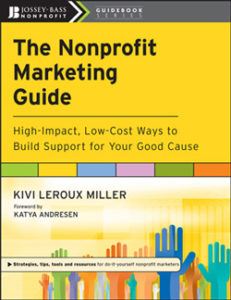
Call me a gal with a dream. When I think about the trends I’d like to see in the future—what I really want to see changed—well, I want us to change the way we think nonprofits are supposed to work. No biggie…pretty sure we can have it wrapped up by next Friday. Slurp another cuppa coffee or glass of wine. We’ve got plenty of time.
You might wonder why I would choose such a lofty aspiration for us as a community of people doing good. You have your hands full already, right? “Erica” you might say, “you already asked us to stop thinking of ourselves as mission-driven organizations. Now you want us to change how we work?” What I am suggesting is that we eliminate the double standards that Dan Pallotta talks about in his great, recent TED talk:
Dan points out that there is something seriously messed up with the belief system around how nonprofits *should* operate—the belief that overhead is bad, that people have to choose between making money and serving social causes, that risk in the name of growth and innovation are unacceptable. What I’m hoping is that nonprofits are given “permission” to level the playing field with the for-profit sector and that our attention is focused on investing for optimal outcomes.
And by “permission”, I mean lead the charge on shifting this paradigm. So really I don’t mean permission at all—I mean boldly venturing forth. I mean taking the bull by the horns. I mean stopping this antiquated nonsense. It’s time. Really, truly time.




